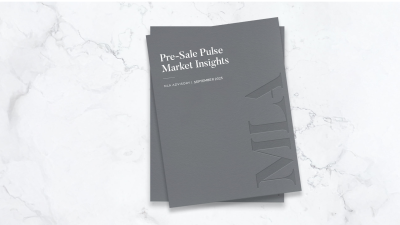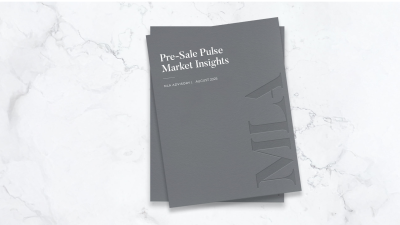Inflation in Canada has been high for over a year now, and as it stays up so do mortgage rates (and payments) which, in turn, contributes back to inflation. When it comes to mortgages right now, there seems to be more questions than answers – even for the experts. In this current rate environment, what can homebuyers and homeowners do to reduce the pain of this inflation cycle? We asked Scott Gingles, Mortgage Broker and Owner of Nest Mortgage, for his insights and expert recommendations on a short-term strategy that will best mitigate the impacts of the current rates.
Q: Scott, can you provide a high-level overview of the current rate environment and the forecast for rates?
Scott Gingles: There is some consensus within the industry on the mid- to long-term outcome, but more uncertainty and questions than ever on what will happen over the remainder of the year. The focus remains unwavering on inflation. Over the past year, the US Federal Reserve and Bank of Canada have increased rates, 500 and 425 basis point respective, at the fastest pace we’ve seen in over 20 years. However, as recently as last week, it was indicated that we are nearing the peak of interest rate hikes – a hopeful indicator for Real Estate and mortgages alike.
Q: What’s the greatest risk right now to those looking to renew or refinance their mortgage within the next 6-12 months?
SG: The greatest risk lies in qualification and potentially locking in too high, for too long. At mortgage maturity, you typically have the freedom to have a mortgage broker shop the best rates and options. However, many renewing borrowers may not qualify after the ‘mortgage stress test’ was introduced in 2018, and only have their existing lender’s renewal terms available. A household income of $150,000 annually that qualified for about $750,000 in mortgage prior to March 2022, would now qualify for around $635,000, or approximately 15% less borrowing power. Quantitative tightening has resulted in an elevated rate environment. At this point, it’s not a matter of if rates will come down, but when, but unfortunately no one has a crystal ball. Should you secure a long-term fixed rate today, there will likely be a high (IRD) penalty and cost to source a lower rate prior to maturity.
Q: What are some strategies to alleviate monthly household payments?
SG: One strategy is debt consolidation, which involves refinancing to pay out higher interest rate cards, lines, and loans. Another is re-amortizing or extending one’s amortization out to 30 years to lower the overall mortgage payment. Lastly, securing a lower rate on a three- to four-year term can also help.
Q: What strategy are you currently recommending to homebuyers looking to secure a mortgage in this current rate environment?
SG: For new and existing mortgages alike, historically longer five-year terms, both fixed and variable, were the strongest and best rate options available. However, given the inverted yield curve environment, we are recommending a 'near-term strategy' for most of our borrowers. This involves securing the lowest rate possible on a shorter fixed term during near-term uncertainty.
“Given the uncertainties and risks of the current environment, we are recommending a three-year fixed term as a near-term strategy for most of our borrowers.”
Q: What are the advantages of going with this short-term rate strategy?
SG: Securing a three-year fixed term allows us to source a better rate than what is currently offered on a variable and provides a safeguard against payment or interest fluctuation. Yet it also allows for flexibility to source, ideally, a lower rate in the not-so-distant future, versus being locked into a higher five-year term and rate for longer. It’s the first time in my twenty-year career in the industry where the focus on five-year terms has shifted. Rates are poor for the one-year terms, and five years is too long to carry a current elevated fixed rate. A three-year term is the happy medium here.
Q: Can you provide a homebuyer scenario based off the average home price in Metro Vancouver?
SG: Let's consider an average purchase price of a condo in the Greater Vancouver Area, which is around $750,000. Assuming an 80% loan to value, we would consider a $600,000 mortgage with a 25-year amortization. Prime rate in Canada was as low as 2.45% prior to March 2, 2022, with variable rate mortgages widely available at 1.45%. The payment on a $600,000 mortgage at 1.45% would be $2,384 per month. However, in less than a year, Prime has increased to 6.70%, and the same variable rate mortgage is now offered at 5.70%. A similar $600,000 mortgage at 5.70% today would be $3,733 per month. That’s a 57% increase in the monthly payment.
“Securing a three-year fixed term allows for a better rate and provides a safeguard against interest fluctuation while allowing for the flexibility to source a lower rate in the near future.”
Q: The Bank of Canada has said that getting inflation back to the 2% target may be challenging due to slowly decreasing inflation expectations, high service price inflation and wage growth, and abnormal corporate pricing behaviour. What’s your outlook on rates for the remainder of 2023?
SG: The Bank of Canada is prioritizing disinflation and arguably there is a long way to go before getting back to the 2% to 3% range. Despite long-term inflation expectations being anchored, core inflation is temporarily stuck in a rut, and non-housing services inflation hasn't risen as much as most have hoped. This situation, combined with the uncertainty surrounding the potential for a Canadian recession, makes the future of interest rates even more complex. A looming recession, unprecedented labour numbers, turmoil with banking (especially in US), sticky inflation, global conflict – there is just too much uncertainty and too many questions to predict beyond the near term.
“With sustainable decreasing mortgage rates, demand mounting, and supply tightening, we may see another run in real estate that is unaffected by rates.”
The current rate environment presents challenges but also opportunities for savvy homebuyers. The real estate supply in Canada is limited, and fear of missing an opportunity to buy at the dip is mounting. By considering strategies such as near-term mortgages, homebuyers can successfully navigate this terrain. As always, it's important to consult with a mortgage professional such as Scott and his team at Nest Mortage to understand the best strategy for an individual scenario.
Scott Gingles
Mortgage Professional | Owner
nestmortgage.co
Early in his career, as an Underwriter and Business Development Manager with two leading Charter Banks, Scott gained invaluable knowledge and know-how that he now applies in sourcing the best mortgages available. Heading up one of Western Canada's leading Mortgage Brokerages, he and his team are dedicated to providing the best service and mortgage experience (period)!



